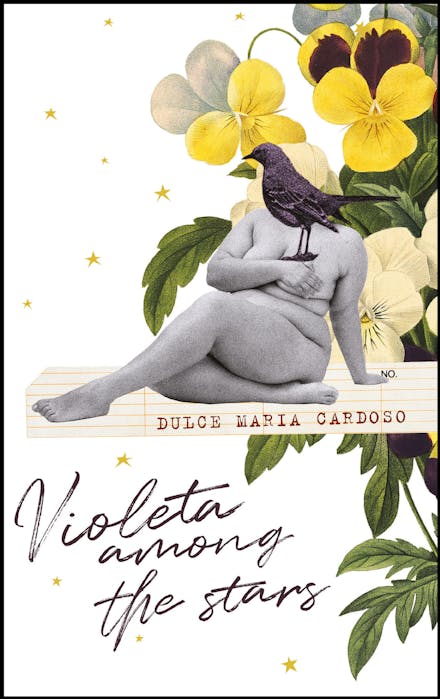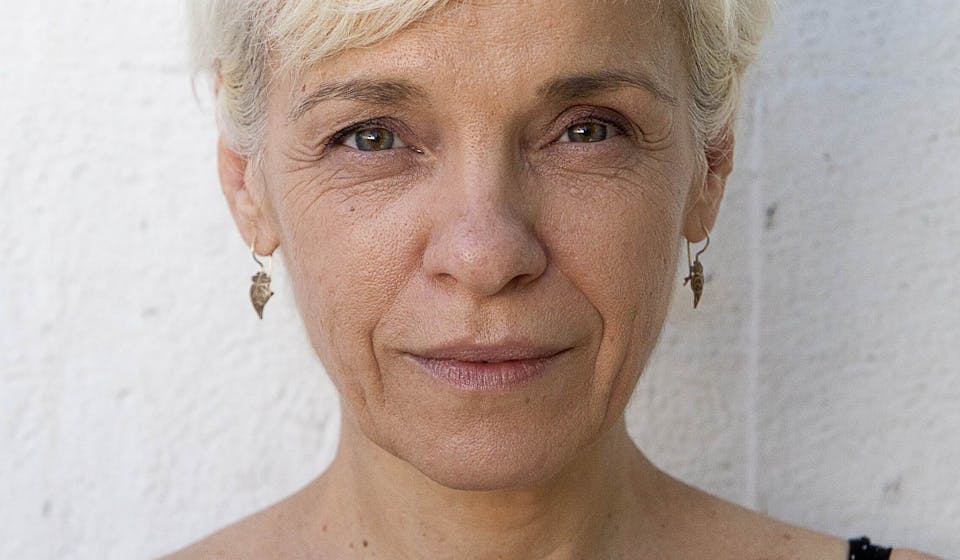Imprint
- MacLehose Press
- MacLehose Press
- MacLehose Press
Portugal, Modern & contemporary fiction (post c 1945), Fiction in translation
-

Imprint
MacLehose Press
- Paperback Aug 30, 2022 | 9781529415148 | RRP $24.99 Buy Now
- Trade Paperback Sep 28, 2021 | 9781529415131 | RRP $34.99 Buy Now
- Hardback Oct 12, 2021 | 9781529402445 | RRP $45.00 Buy Now
-

Imprint
MacLehose Press
- Paperback Aug 30, 2022 | 9781529415148 | RRP $24.99 Buy Now
- Trade Paperback Sep 28, 2021 | 9781529415131 | RRP $34.99 Buy Now
- Hardback Oct 12, 2021 | 9781529402445 | RRP $45.00 Buy Now
-

Imprint
MacLehose Press
- Paperback Aug 30, 2022 | 9781529415148 | RRP $24.99 Buy Now
- Trade Paperback Sep 28, 2021 | 9781529415131 | RRP $34.99 Buy Now
- Hardback Oct 12, 2021 | 9781529402445 | RRP $45.00 Buy Now
A beautiful, blistering life story told amid the wreckage of a car crash
I might no longer exist here at this moment
this moment might no longer exist for me
Violeta is driving along a lonely stretch of late-night motorway, caught in a tumultuous storm. When her tired eyes close for just a second, her car veers off the road, overturns, and comes to rest on an empty stretch of sodden ground.
And as she lies amid the wreckage, suspended between this world and the next, Violeta's troubled life will quite literally flash before her eyes . . .
Violeta Among the Stars weaves memories and feelings as Violeta reflects on her death and her life, the piercing highs and the seedy lows. An astonishing portrait of a seemingly insignificant life from one of Portugal's greatest living writers.
"An extraordinary piece of writing on the life of an ordinary woman" Litro
"Absolutely compelling . . . this novel is truly unforgettable" Irish Independent
Translated from the Portuguese by Angel Gurria-Quintana
Angel Gurria-Quintana is a historian, journalist and literary translator from Spanish and Portuguese. He writes regularly for the books pages of the Financial Times, and his translations include the anthology Other Carnivals: Short Stories from Brazil and The Return, by Dulce Maria Cardoso.
With the support of the Creative Europe Programme of the European Union
Praise for Violeta among the Stars
-
A vibrant style, a brilliant novel. - De Standaard
-
Every word is in the right place and the result is pure music - De Volkskrant
-
A devastating novel - Matricule des Anges
-
A powerful, moving monologue that weaves intimate voices with the history of contemporary Portugal - Livre Hebdo
-
Exceptional ... absolutely compelling ... this novel is truly unforgettable - Irish Independent
-
Quite extraordinary and a privilege to read . . . Devastating but immensely moving . . . Violeta among the Stars is related with rare eloquence - European Literature Network

Dulce Maria Cardoso
Dulce Maria Cardoso is a Portuguese writer, who spent her childhood in Luanda, Angola after her parents moved there when she was an infant. Her family returned to Portugal following the Angolan War of Independence in 1975. She studied law at the University of Lisbon and worked as a lawyer before becoming a full-time writer. Her first novel, Campo de Sangue, won the Grand Prize Acontece de Romance, Violeta among the Stars won the EU Prize for Literature and O ChA o dos Pardais won the Portuguese Pen Club Award.


















.png?auto=compress&w=150&h=60&fit=crop&fm=jpg)
.png?auto=compress&w=150&h=60&fit=crop&fm=jpg)




